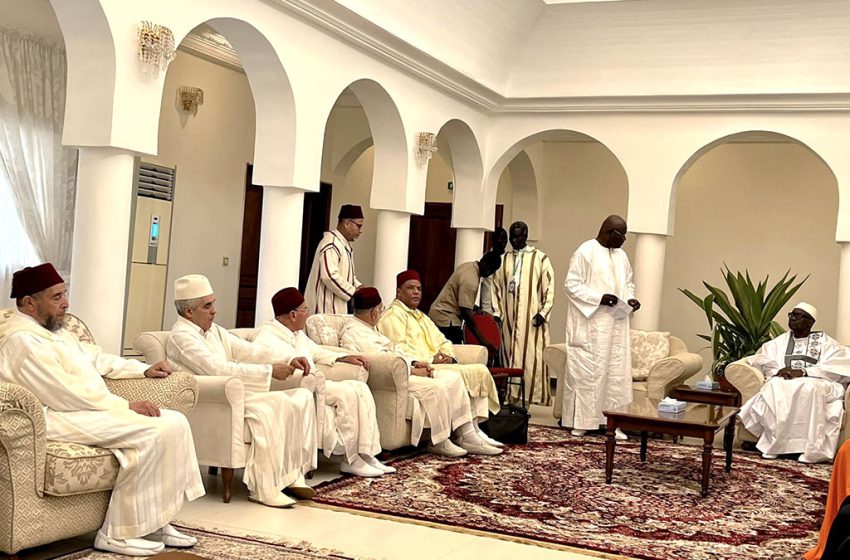
President Bassirou Diomaye Faye has announced a groundbreaking initiative to create a state budget dedicated to religious worship, aimed at supporting religious families and major celebrations such as the Gamou.
The announcement was made during his visit to Tivaouane on Saturday, August 29, 2025.
“This budget will be renewed and strengthened each year to better support religious families. Senegal’s brotherhoods are references, sources of peace and development, and they deserve increased support in their social and spiritual missions,” the President declared.
This initiative builds on reforms begun in September 2024 with the appointment of Professor Djim Dramé as head of the Directorate of Religious Affairs and the Integration of Language Graduates.
President Faye confirmed that this structure will evolve into a General Delegation of Religious Affairs, offering greater resources and institutional authority. A formal ratification at the Council of Ministers on June 11, 2025, reinforced the government’s commitment to providing a strong institutional foundation for managing religious affairs.
During his visit, President Faye paid tribute to El Hadj Malick Sy, the founder of Tivaouane’s Gamou festival in 1902, lauding the “exemplary attitude” of his descendants in safeguarding the spiritual heritage of the town.
The visit included a ceremony at the Serigne Ababacar Sy complex, where Serigne Moustapha Sy Al Amine expressed the gratitude of the Tidian community: “If we had a diamond palace, we would welcome you there. If the Caliph is honored, it is an entire community that feels honored.”
The President was received by the General Caliph of Tidianes, Serigne Babacar Sy Mansour, and visited the great mosque of Tivaouane alongside members of the Sy family and senior administrative authorities.
The dedicated budget reflects a new institutional recognition of the social and spiritual role of Senegal’s religious communities.
By providing sustainable funding and formal oversight, the government aims to strengthen the organisation of religious events, support families involved in spiritual leadership, and consolidate the country’s cultural and religious heritage.
Experts see this as a strategic step to reinforce national cohesion and ensure that major religious celebrations continue to serve as both spiritual and communal milestones in Senegal.



